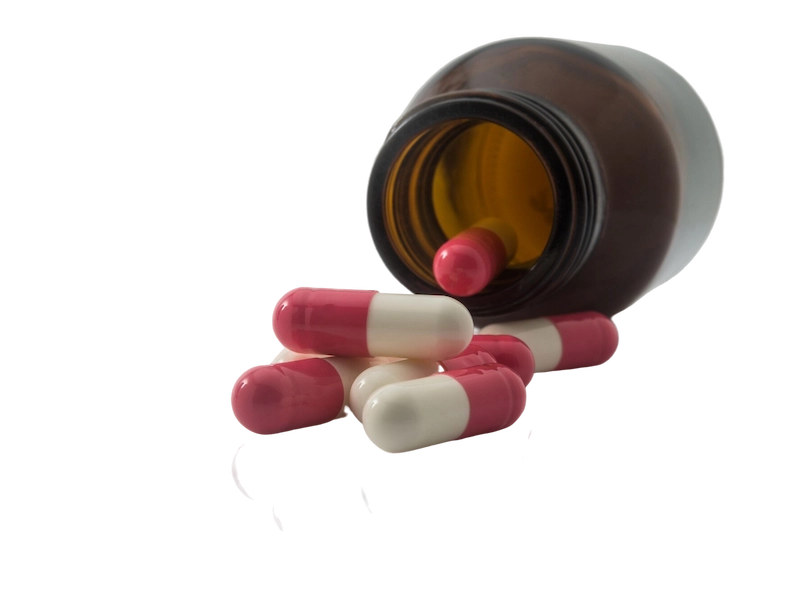Halal Certification for Pharmaceuticals & Supplements
With Muslims constituting nearly a quarter of the world’s population, the demand for pharmaceuticals halal certification has become a critical business imperative for companies seeking to serve this expanding market effectively.

Halal Pharmaceutical Certification Services
Serve Muslim Consumers with Confidence, Compliance, and Global Reach
With over 2 billion Muslims worldwide, the demand for halal-compliant healthcare products is rapidly rising. The global halal pharmaceutical market is projected to reach $174.59 billion by 2025, making halal certification a critical business move for pharmaceutical and nutraceutical manufacturers.
We offer comprehensive halal pharmaceutical certifications to help your products meet both Islamic guidelines and global regulatory standards. Whether you’re producing medicine, supplements, or health products, our halal certification ensures your offering is permissible (halal), safe, and market-ready for Muslim consumers around the world.
Why Halal Certification Matters in Pharmaceuticals
Halal certification for pharmaceuticals isn’t just about avoiding pork or alcohol; it’s a full-scale system of compliance, quality, and trust based on Islamic values. The Quran commands:
“Eat from what is lawful and pure on the earth, and do not follow the footsteps of Satan…” (Al-Quran 2:168)
Modern Muslim consumers want assurance that what they consume, even for medical purposes, respects their faith. Certification helps you:
- Expand globally into Muslim-majority markets
- Build trust with religiously observant consumers
- Comply with international halal standards
- Increase brand reputation and sales potential
The Quran establishes fundamental principles that guide halal pharmaceuticals certification:
“And He is the One Who sends the winds ushering in His mercy, and We send down pure rain from the sky.” (Al-Quran 25:48)
This verse emphasizes Allah’s preference for purity (taharah), which must be reflected in pharmaceutical manufacturing. The concept of purity extends beyond physical cleanliness to encompass spiritual and ritual purity.
What We Certify
In order to provide you with certification for pharmaceutical industry, we offer halal certification for:
- Pharmaceutical Products: Tablets, capsules, syrups, injectables, and APIs
- Nutraceuticals: Supplements, vitamins, functional foods
- Cosmeceuticals: Medicated skincare and wellness products
- Manufacturing Facilities: End-to-end plant certification
Key Halal Requirements
Our process ensures full compliance with Islamic law by verifying that your:
- Ingredients are free from haram substances (like pork, alcohol, or non-halal gelatin)
- Processes prevent cross-contamination through equipment cleaning and separation
- Supply chains are traceable and compliant with halal sourcing
- Staff are trained to handle halal production properly
- The facility maintains purity in accordance with Islamic principles
We also assess medical necessity allowances, ensuring compliance with exceptions in cases where no halal alternative exists, based on Islamic rulings (Al-Quran 2:173).
What’s Halal & What’s Not?
Permissible (Halal) Ingredients Include:
- Plant-derived excipients and binders
- Fish gelatin from halal sources
- Synthetically manufactured vitamins and APIs
- Ethically sourced honey, marine oils, and beeswax
- Non-intoxicating, non-fermented alcohols for processing
Prohibited (Haram) Ingredients Include:
- Pig-based gelatin and enzymes
- Animal derivatives from non-halal slaughter
- Alcohol from fermentation is used for intoxication
- Insect-based compounds like carmine and shellac
- We help verify every ingredient through documentation, lab testing, and global supplier audits.
Who Needs Halal Pharma Certification?
You should seek halal certification if you:
- Export to Muslim-majority countries (e.g., Malaysia, Indonesia, UAE, Saudi Arabia)
- Produce over-the-counter (OTC) drugs or supplements targeting Muslim consumers.
- Manufacture health products using animal-based, alcohol, or complex ingredients.
- Want to position your brand as ethical, inclusive, and religiously compliant
Benefits of Working with Us
- Full Compliance: We work with globally recognized halal standards
- Industry Expertise: Deep knowledge of pharmaceuticals and Islamic law
- Fast Turnaround: Efficient audits, documentation, and testing support
- Global Access: Open doors to Southeast Asia, the Middle East, Europe, and more
- Brand Advantage: Enhance your market value with certified trust
Serve a Growing Market with Confidence
Muslim consumers are more informed and health-conscious than ever. By certifying your pharmaceutical or nutraceutical products as halal, you align your business with ethical standards, religious values, and global opportunity.
industries we serve
Is Your Product Ready for Halal Certification?
Get a Free Expert Evaluation Today
Discover if your ingredients, processes, and facilities align with Islamic dietary laws.
Start your Free Halal Compliance Check now — no obligation!

Certification Process
The halal certification in Pharmaceuticals & Supplements can be done through the following process:

Make Contact
Connect with us to start halal certification for your pharma or supplements.

accept proposal
Approve the tailored certification plan designed for your products.

down payment
Proceed with the initial payment to confirm your application.

Submit docs
Provide formulations, ingredients, and all required documentation.

audit
Our auditors review facilities and processes for full halal compliance.

halal certify
Obtain your official halal certificate for pharmaceuticals and supplements.
FAQs
What makes a pharmaceutical product halal-certified?
Can Muslims take medications with alcohol in emergencies?
How is gelatin verified as halal?
How is halal certification different from other pharma certifications?
Testimonials
Posted onTrustindex verifies that the original source of the review is Google. I love it! It’s so helpful and easy to keep track of things we are consuming and making sure everything is halal for us Muslim brother and sisters!Posted onTrustindex verifies that the original source of the review is Google. Great and professional organization! Very respectful responsive and really do their thoroughly. We been dealing with them for few years and it has been a great experiencePosted onTrustindex verifies that the original source of the review is Google. Great customer services!!Posted onTrustindex verifies that the original source of the review is Google. What stands out most about Halal Watch World is its unwavering commitment to integrity and excellence. I’ve seen firsthand how dedicated the company is to providing clients with the best service and ensuring they meet the highest halal standards. If you’re looking for a reliable and trustworthy partner for your halal certification needs, Halal Watch World is the clear choice. It’s a company that truly values quality, professionalism, and making a positive impact in the industry.Posted onTrustindex verifies that the original source of the review is Google. A compassionate , conscientious company. Constantly striving to meet the needs of the community. We highly recommend them.
